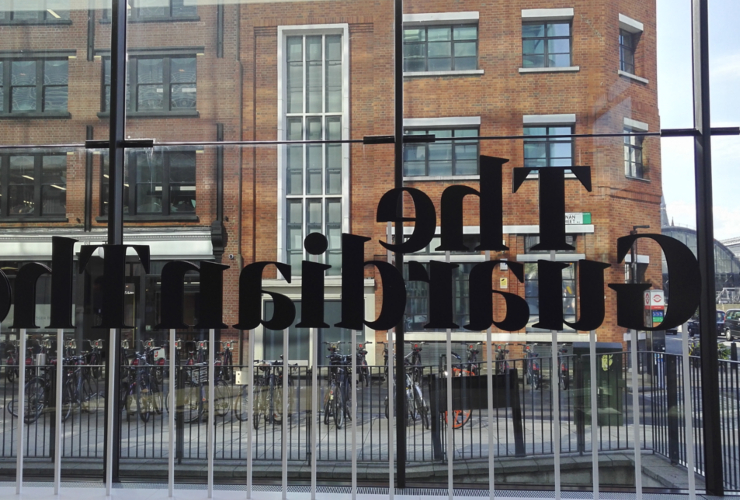Comment sections of news sites are one of the arenas where journalists may become targets of abuse and vitriol. To tackle this issue, media organizations in the UK have adopted various measures to better manage and moderate the comments on their websites.
Representatives of the International Press Institute (IPI) and the Organization for Security and Co-operation in Europe (OSCE) conducted a fact-finding mission to the UK last week as part of IPI’s Ontheline project and the OSCE Representative on Freedom of the Media’s Safety of Female Journalists Online (SOFJO) project. The mission visited top UK newsrooms to understand the measures media organizations have implemented to fight online harassment of their journalists. IPI representatives discussed best comment management and moderation practices with various outlets, including The Guardian, The Telegraph and The Times.
Here are some initial findings on measures UK newsrooms are taking to prevent online harassment in comment sections:
– Some media organizations in the UK host comment sections that are generally operated on a post-moderation basis. The decision to post-moderate is partly informed by the legal situation in the UK and the liability of publishers for what is posted. Comments breaching community standards are flagged by reporting tools that are available for any users, including journalists. Stricter moderation measures, such as pre-moderation or closing the comment section for certain stories, can be put in place if needed. Pre-moderation is occasionally used if the writer of the article has previously faced online harassment or if the subject of the story has been identified as particularly incendiary (e.g., Brexit, terrorism, mental health). Commenting is usually completely turned off only in stories detailing ongoing court cases.
– Some media organizations only ban commentators who severely violate their community standards for a brief period of time, ranging from one to three months in most cases. Permanent bans are issued only in extreme cases. Newsrooms are also looking into measures with which they could prevent the same users from creating several accounts, e.g., by blocking their IP address. On some sites, dubious commentators can be flagged so that their messages always pass through pre-moderation.
– Moderation teams keep an eye on patterns to detect organized attacks on journalists or the newspaper’s other contributors. Messages threatening the safety of journalists would be escalated in the news organization, but such outright threats are seldom issued in the comment section.
– Some newsrooms have started to pick more carefully than before which stories are open for commenting. The objective of this measure is to enhance meaningful conversations and to improve the quality of the conversations.
– Some of the media organizations IPI interviewed have outsourced moderation. Those that have say it’s useful to have moderators and editorial staff working in the same location. Moderation teams often have plenty of silent knowledge that is occasionally shared with journalists when planning which stories to open for commenting and how journalists could take part in the conversation in the comment section.
– Some media organizations encourage their journalists to engage in conversations with their readers in the comment section and have provided journalists guidelines for doing so. The journalists’ presence below the line is perceived as a factor that improves the quality of the conversations and helps to take the heat off, but many journalists are reluctant to do it, often in fear of being targeted. Though not all comment threads include outright attacks or threats, comments undermining the professionality of the journalist is seen as equally disturbing in the long term.
– Several UK newspapers have analyzed the content of their comment section, or plan to do so, to better understand the commentators. One newspaper hosted an event with their most prominent Brexit commentators to tell them about moderation of comments and to meet editorial staff as well as other commentators. After the gathering, these commentators started to argue more constructively and to defend those of other points of view.
RELATED:



